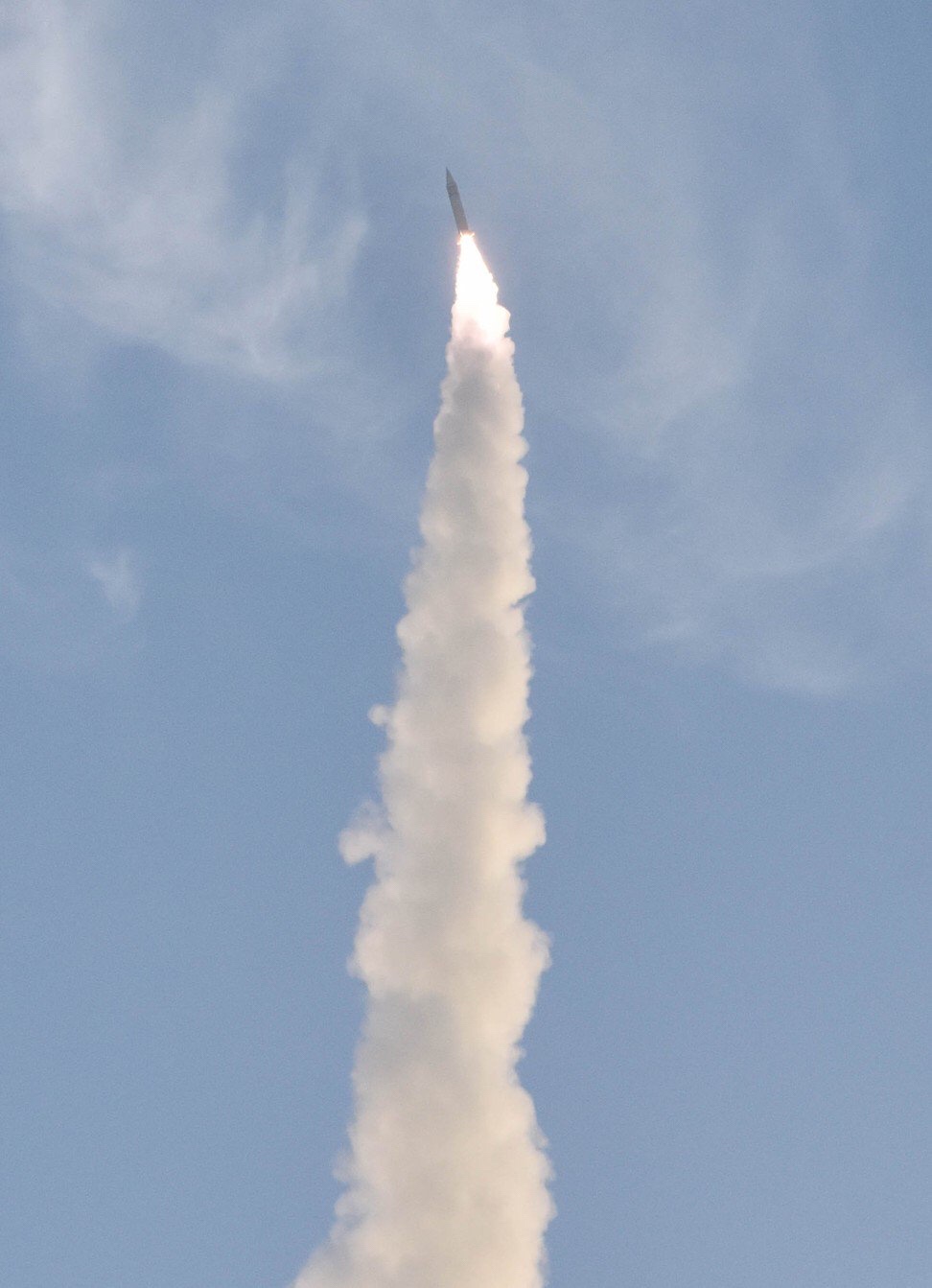 China’s hypersonic aircraft, Starry Sky-2, could be used to carry nuclear missiles at six times the speed of sound
China’s hypersonic aircraft, Starry Sky-2, could be used to carry nuclear missiles at six times the speed of soundFirst test flight of experimental design, which rides its own shock waves, deemed a ‘huge success’
Liu Zhen
Tuesday, 7 Aug 2018, 4:10AM
China has successfully tested a new hypersonic aircraft that could one day be used to carry missiles at such speeds as to make them unstoppable, according to scientists involved in the project.
The Starry Sky-2, which is an experimental design known as waverider – for its ability to ride on the shock waves it generates – completed its first test flight on Friday at an undisclosed location in northwest China, the China Academy of Aerospace Aerodynamics said in a statement issued on Monday.
The aircraft was carried into space by a multistage rocket before separating and relying on its own power. During independent flight it conducted extreme turning manoeuvres, maintained velocities above Mach 5.5 (five-and-a-half times the speed of sound) for more than 400 seconds, and achieved a top speed of Mach 6, or 7,344km/h (4,563mph), the statement said.
On completion of the flight, which was deemed a “huge success”, the aircraft landed in a designated target zone, the academy said.
The entire flight was controlled and provided effective test data, while the aircraft itself was recovered “whole”, the statement said.
“The test … has laid a solid technological foundation for engineering applications of the waverider design,” it said.

Although still at the experimental stage, once fully developed, waveriders could be used to carry warheads capable of penetrating any anti-missile defence system currently available.
Beijing-based military analyst Zhou Chenming said it would most likely be used for carrying conventional warheads rather than nuclear ones, adding that such a capability was still some way away.
“I think there are still three to five years before this technology can be weaponised,” he said.
“As well as being fitted to missiles, it may also have other military applications, which are still being explored.”

The Starry Sky-2 is not China’s first hypersonic aircraft – it has been testing hypersonic glide vehicles since 2014 – but is the only one that makes use of waverider technology.
The new aircraft, which has a flatter, wedge-shaped fuselage to improve its supersonic lift-to-drag ratio, also has much greater manoeuvrability that makes early warning or interception more difficult.
China could test fire new Russian missile defence system in coming days, Tass news agency says
Mike Griffin, a former Nasa administrator and now the Pentagon’s defence undersecretary for research and engineering, said earlier this year that China had built “a pretty mature system” for a hypersonic missile to strike from thousands of miles away.

China is not alone in developing hypersonic weapons; the United States and Russia are too.
Russian President Vladimir Putin said in June that the Kinzhal hypersonic missile system had reached speeds of Mach 20, while a new hypersonic glide vehicle, the Avangard, which was “absolutely invulnerable to any missile defence system” would come into operation next year, followed by a nuclear-armed intercontinental ballistic missile in 2020.
The US is working on several designs, including the Hypersonic Technology Vehicle 2 and Advanced Hypersonic Weapon. Earlier this year, the US Air Force allocated US$1 billion for the design and development of a hypersonic missile that could be launched from a warplane.
No comments:
Post a Comment